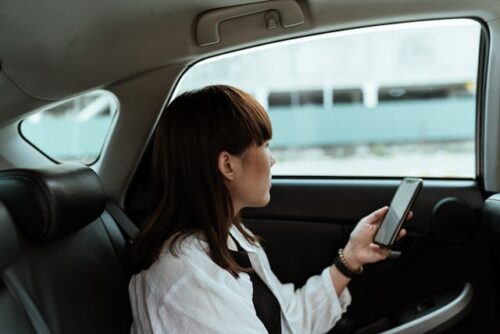
Nothing is worse than sustaining a serious injury in an accident, especially one caused by the careless action of another. Passengers who’ve been injured in car accidents are almost never at fault, but if you’re one of them, you may, understandably, feel hesitant to file a claim against the driver, as they are likely a friend or relative. Please continue reading and speak with a dedicated Stamford, Connecticut car accident lawyer to learn more about liability in these cases and whom passengers may sue after an injury. Here are some of the questions you may have:


Who Is Liable in a Passenger Injury Case?
Determining liability in car accidents involving passengers often hinges on multiple factors. Typically, the driver responsible for the accident bears liability for injuries incurred. However, in situations where multiple vehicles are involved, attributing fault can become more complex. Connecticut’s comparative negligence law might affect a passenger’s ability to recover damages if they are partly at fault. An example is when one rides with a designated driver who has had too much to drink. Notably, in Connecticut, the failure to wear a seatbelt cannot be used in assessing comparative fault.
Can Passengers Sue the Driver of the Vehicle They Were in?
A common misconception is that suing a friend or family member who was driving is a direct personal attack. In reality, it’s a legal process aimed at claiming from insurance. Most car insurance policies are designed to cover passengers injured in an accident. Therefore, when a passenger files a claim, it is generally the insurance company that is responsible for paying out damages, not the individual driver.
This distinction is crucial, especially in cases where the driver is someone close to the passenger. It’s important to understand that pursuing a claim in such situations is not about assigning personal blame. Rather, it’s about accessing the financial resources needed for medical treatment, recovery, and compensation for any lost wages or suffering. A personal injury attorney can help explain this process in more detail, ensuring that both parties understand the implications of a claim.
Furthermore, passengers should not feel guilty or hesitant about exercising their legal rights. The priority should be recovering from injuries, both physical and emotional, that were incurred without fault. The legal system and insurance policies are in place precisely to help individuals recover from such unforeseen circumstances. And while it is true that a car accident will likely be factored in the cost and/or availability of the auto policy when the renewal is due, it is the accident and not the scope of the claim that will be factored for the availability of insurance coverage. Besides, auto insurance premiums are calculated assuming the risk of claims. If someone is injured and doesn’t make a claim, you have to assume that it is the insurance company that pockets that windfall.
What About Filing Claims Against Other Drivers?
If another driver’s negligence caused the accident, passengers might have a claim against that driver. This process involves establishing the other driver’s fault in causing the accident. An experienced personal injury lawyer can help gather the necessary evidence and navigate these claims. Ensuring that all potential sources of compensation are considered is crucial for a fair settlement.
As a passenger in a car accident, you have several options for seeking compensation for your injuries. The specific circumstances of the accident dictate whom you should sue. It’s important to remember that insurance companies, not individuals, often bear the brunt of financial responsibility. Seeking legal advice from a Connecticut personal injury lawyer can help clarify your options and rights.
If you have further questions or need assistance with a potential claim, please don’t hesitate to contact Casper & de Toledo today.

